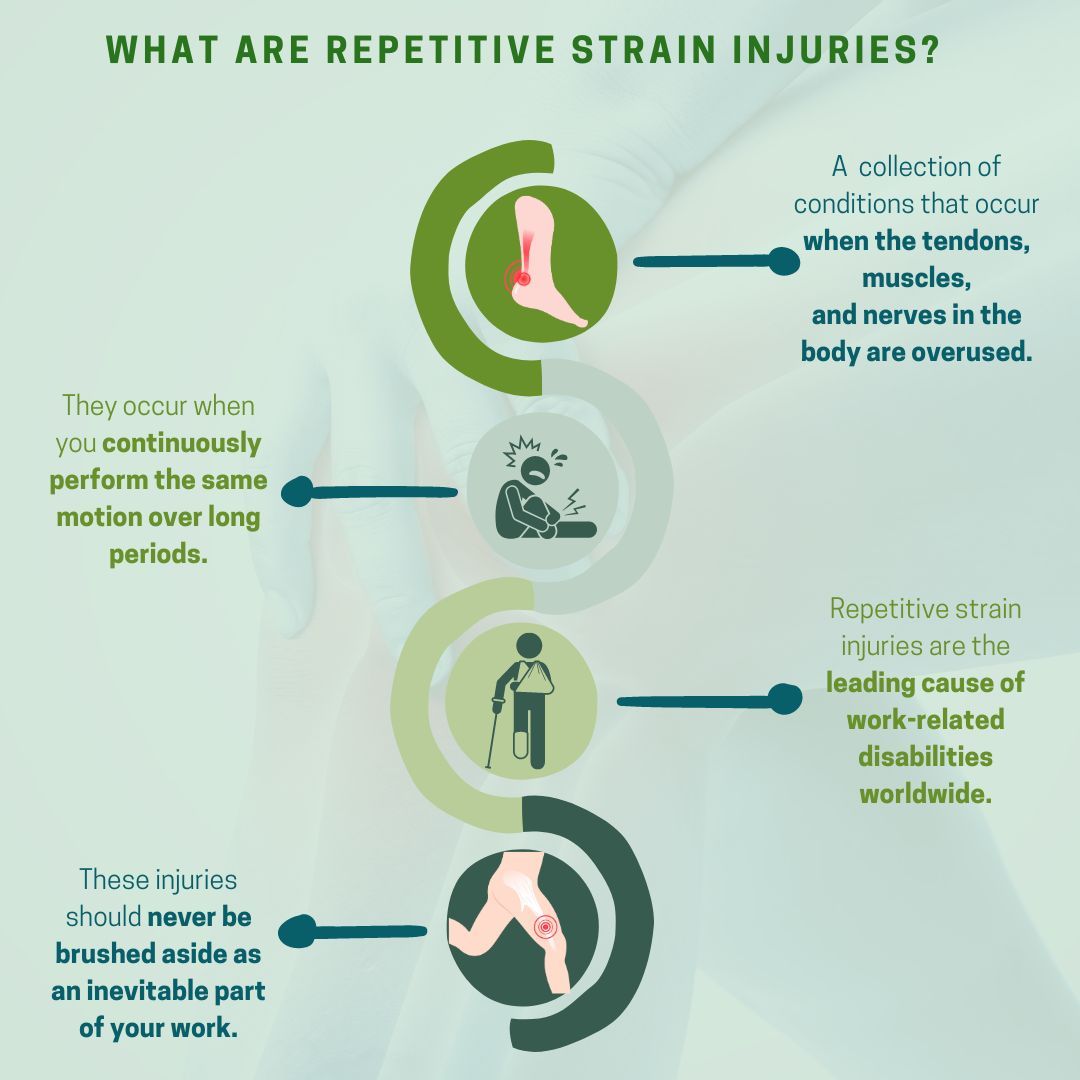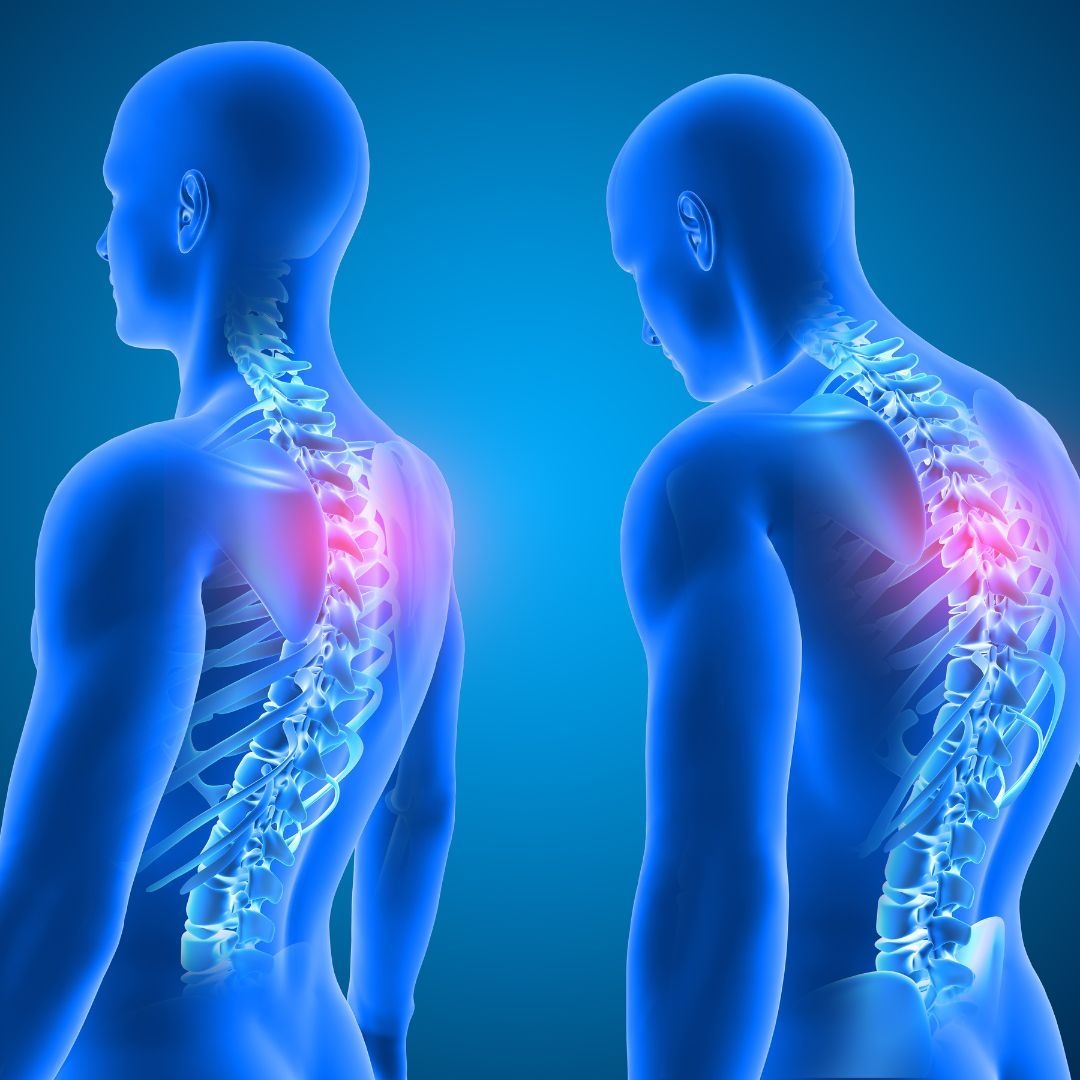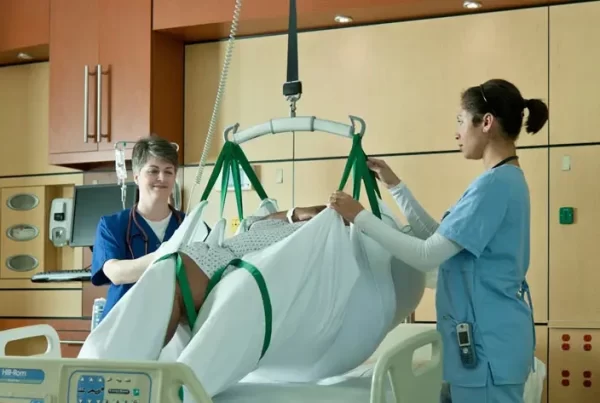Repetitive Strain Injuries: Causes, Effects, and Prevention
Sita is a 32-year-old Business Analyst who works at a reputable multinational firm based in central London. Her regular working day begins at 9 AM and ends at 5 PM when she leaves for her home in Oxted. Sita’s role requires a high-volume throughput of work, and she is often under pressure to meet tight deadlines. She’s a hard worker and loves the sense of achievement associated with meeting targets on time, and she really enjoys her work. Most of her day is spent sitting at her desk in front of the computer, working on specific projects that have been assigned to her. She also develops ideas and attends virtual meetings regularly, communicating with colleagues in a range of global offices around the world.
CASE OVERVIEW
However, lately, Sita’s begun to experience pain and discomfort in her right wrist and hand to the extent that she’s finding it difficult to type and use her mouse. At first, these symptoms were intermittent, only bothering her one or two days a week. However, after a few weeks, she noticed that the frequency and intensity of her discomfort had increased. Gradually, the symptoms have started to make themselves known everyday, especially towards the end of the day. When she experiences this pain, she has to stop working and stretch and rest her right arm, hand, and wrist until the symptoms subside. Sita reported the symptoms she was experiencing to her supervisor, who told her to take rest breaks when the problem flares up. Sita feels anxious: her work productivity has diminished, and being extremely diligent and conscientious in her role, this really worries her. She hates the feeling of slipping behind with her work commitments. However, her pain and discomfort won’t disappear, and she was even forced to take several days off work to rest her arm. She decided to visit an osteopath, who diagnosed that she had developed a repetitive strain injury (RSI), probably caused by the protracted use of her display screen equipment (DSE) that had not been ergonomically set up.
Following her visit to the osteopath and to help herself, Sita began reading about DSE workstation setup to help minimise the stress and strain on her body. She discovered that her workstation had been poorly set up, with her keyboard and mouse too far away from her body and her computer monitor positioned too low. This was placing a strain on her musculoskeletal system. Unfortunately, her long hours without breaks had only compounded the severity of the injury.
Sita’s injury illustrates the importance of using DSE correctly and regularly taking breaks to prevent the development of RSI. In the UK, employers are legally obliged to provide adequate and professional DSE assessments for their employees to prevent health issues caused by DSE usage.
Preventing RSI's: A Summary of Related OFI Services
- Online Employee DSE Training and Assessment Tool
- Remote Workstation Assessment for Employees Working from Home or the Workplace
- On-Site DSE Assessments
- DSE Assessor Training (online or in person)
- Ergonomic Champion Training
- Manual Handling Training
To find out more, you can visit: https://www.ofi.co.uk/
The Wider Context: Preventing Repetitive Strain Injuries in the Workplace
Under the 1974 Health and Safety Work Act, UK employers have a legal obligation to protect their employees’ health, safety, and welfare, which includes making efforts to prevent RSI and taking appropriate measures to avoid employees developing other work-related musculoskeletal disorders.
According to the 1992 Management of Health and Safety at Work Regulations, employers must assess the risks to their employees’ health and safety, including the risk of developing RSI, and take appropriate action to control such risks. This includes implementing ergonomic measures, providing training and resources for employees, and promoting good posture and working practices.
In addition to the legal obligations, employers in the UK may be required to follow industry-specific standards and guidelines connected to the prevention of RSIs. The ACR (Assess,Control, and Review) model of RSI prevention is extremely relevant to managing and preventing RSIs.
The Bureau of Labour Statistics estimates that over 600,000 workdays are lost each year due to RSI caused by unhealthy DSE practices. The most susceptible industries are healthcare, manufacturing, and information technology. Therefore, implementing safe practices to encourage workplace health and wellbeing is crucial.
What are Repetitive Strain Injuries?
- RSI is the term used for a collection of conditions that occur when the tendons, muscles, and nerves in the body are overused, resulting in pain and discomfort.
- They occur when you continuously perform the same motion over long periods.
- According to the World Health Organisation, repetitive strain injuries are the leading cause of work-related disabilities worldwide. For example, RSI are the most common type of work-related musculoskeletal disorder in the UK, with over 700,000 cases every year.
- These injuries should never be brushed aside as an inevitable part of your work – they must be dealt with immediately and professionally.

Signs and Symptoms of Repetitive Strain Injuries:
Some signs and symptoms in the injured area can include:
- Pain and aching that can feel like a burning or throbbing sensation.
- Tingling, pins-and-needles, or numbness.
- Stiffness, weakness, or swelling.
- Muscle cramps.
- Difficulty in gripping objects or making a fist.
- Decreased range of motion in the affected joint.
Effects of Repetitive Strain Injuries in Causing Musculoskeletal Disorders
RSI can result in mild discomfort or severe pain and disability. It can lead to mobility loss, difficulty performing everyday tasks, and reduced productivity at work.
RSI can also lead to a variety of musculoskeletal disorders, including:
- Tendonitis:
- Tendonitis occurs when tendons (the fibrous cords that attach muscles to bones) become inflamed.
- It can result in pain, swelling, and stiffness in the affected area.
- Carpal Tunnel Syndrome:
- Carpal Tunnel Syndrome occurs when the median nerve (the nerve which runs through the wrist) becomes compressed.
- It leads to numbness, tingling, and weakness in the affected hand and wrist.
- Tennis Elbow:
- Tennis Elbow occurs as a result of repetitive strain on the elbow and forearm muscles.
- It leads to pain and tenderness on the outer side of the elbow.
- Golfer’s Elbow:
- Golfer’s Elbow is similar to Tennis Elbow.
- Rather than the outside of the elbow, Golfer’s Elbow affects the inside part of the elbow.
- De Quervain’s Tenosynovitis:
- De Quervain’s Tenosynovitis occurs when the tendons and tissue that surround the wrist and thumb become inflamed.
- It results in pain and difficulty in moving the wrist and thumb.
- Bursitis:
- Bursitis is the term for inflammation of the bursae – tiny, fluid-filled sacs that cushion the joints.
- It causes pain and swelling in the affected area.
OFI Services We Can Offer You:
A passion for better workplace health and wellbeing is at the heart of what we do. If you’re looking to protect your employees’ musculoskeletal health, you’d benefit from our professional osteopath/physiotherapist-led services:
- Workstation Assessment Training:
- This is important for providing individuals with the knowledge and skills to assess workstations properly and identify potential hazards. This can help prevent work-related musculoskeletal disorders (WRMSDs) and other injuries.
- Online Assessment Tool and Remote One-to-One Assessment:
- Whether you’re an individual looking to improve your workstation setup or an organisation searching for a way to safeguard the health and safety of your employees, a professional online DSE assessment, carried out from the comfort of your own home or office is an essential way to maintain a healthy and productive work environment.
- In Person Assessment:
- These DSE assessments are conducted by qualified osteopaths and physiotherapists who not only have a deep understanding of the relevant legislations surrounding DSE setup, but can provide valuable insights into how the body works and the importance of proper mechanics in maintaining a healthy and comfortable working environment.
How to Deal with Musculoskeletal Disorders Arising from Repetitive Strain Injury:
Get treatment for your symptoms:
- Immediately stop the activity that is causing the discomfort.
- Apply a cold compress to the affected area to help reduce inflammation.
- See a physical therapist or doctor if the discomfort persists. They can diagnose the problem and recommend appropriate treatment options.
We Can Help: Thrive4Life’s Rehabilitation Services – Fulfilling Your Needs in Musculoskeletal Injury Management
Thrive4Life provides a cost-effective, pay-as-you-go service targeted towards the management of musculoskeletal injuries in the workplace, complete with feedback management reporting. Linked to a fast-access network of over 800 physical therapy clinics (including osteopaths, chiropractors, and physiotherapists) in the UK and Ireland, we can help you improve your employees’ health and wellbeing.
The Benefits:
- Improved productivity levels – reducing absenteeism, deterring unjustified absenteeism, and improving health and safety performance.
- Monitoring and reporting on employee musculoskeletal injuries and health and safety policies in the workplace.
- Assistance with Personal Injury Claims Management Procedure.
- Strengthening employee/employer relationships and creating an organisational reputation that demonstrates your care for your employees’ health and safety.
- For your employees – within 72 hours, they’ll be able to receive access to a local physical therapist for treatment for work-related and non-work-related injuries. This includes tailored preventative healthcare advice and early-stage treatment before injuries become chronic or disabling.
For more information, please get in touch via telephone: 020 8398 9522
Or email: info@ofi.co.uk
Vulnerable category of workers:
Anyone can develop RSI, regardless of their job, especially if they perform tasks which involve repetitive movements or use DSE for prolonged periods. However, some specific groups are usually more vulnerable to RSI. These include:
- Office workers who spend a long time at their desks, working on computers.
- Manufacturing workers who perform the same tasks repeatedly, often for a whole shift.
- Gamers who spend long hours using a computer or gaming console.
- People with disabilities.
- Musicians who play instruments that require repetitive hand or wrist movements.
- Elderly workers and new or expectant mothers.
- Employees returning to work after a period of leave due to an injury or illness.
Get in touch to organise your:
Factors Influencing the Development of Repetitive Strain Injuries:
Research has shown that using DSE can increase the risk of developing RSIs. However, RSIs can also be caused by several other factors that are not always directly linked to the usage of DSE. Understanding and addressing the factors that can provoke RSIs is important to protect the health and wellbeing of workers.
Several factors which can lead to the development of RSIs include:
- Repetition:
- Carrying out any repetitive elements in a task for more than approximately 2 hours per shift.
- Repeating the same movements every few seconds.
- When more than half the time you take to complete a task is spent performing the same sequence of movements.
- Posture:
- Adopting a sedentary position, including slouching or hunching in a chair or leaning over a desk for long periods whilst using DSE.
- Having a wide range of movement in a joint.
- Awkward or extreme positions.
- Twisting or rotating.
- Working with your hands above shoulder height.
- Vibration:
- Regular Hand-Arm-Vibration (HAV) from a powered, hand-held or hand-guided tool, or a hand-feed workpiece.
- Psychosocial and Individual Factors:
- Excessive workload, tight deadlines, and little control over work and working methods can increase your susceptibility to injuries.
- Body size, age, and underlying health conditions (e.g., disabilities) can also influence the occurrence of RSIs.
The ACR (Assess, Control, and Review) model can be used to help control and prevent the occurrence of RSI in workers.
This includes the completion of the following stages:
Assess:
In this stage, you should identify and establish the risks by considering:
- What task needs to be done?
- What tools are needed to do the task?
- Who is doing the task?
- Where is the task going to be done?
Control:
In this stage, you should:
- Give priority to the tasks involving the highest risks. Where the risks are judged to be low, simple and inexpensive control measures usually suffice.
- Work on reducing risk on tasks that involve significant repetition, even if you’ve already minimised some of the risks. In these situations, you should change sequences to make the work less awkward, and allow adequate time for the task to be completed by employees to prevent rushing. You should also try to break up long periods of frequent repetition and static inactivity.
- Ensure sufficient lighting and, as far as possible, moderate temperatures, to reduce susceptibility to RSI.
- Above all, you must provide training and resources to employees to deal with the risks arising from repetitive tasks and the use of DSE – this is extremely important.
Review:
Whilst completing your review, you should:
- Ensure that standards and guidelines are being effectively followed.
- Make sure all equipment is maintained correctly.
- Report, monitor, and investigate any signs and symptoms of RSI – early detection can help minimise the impact on the individual and their work.
- Training individuals and teams of DSE assessors.
- Arranging for a physiotherapist (with extensive expertise in DSE assessment) to carry out DSE assessments at your workplace, either in person or remotely, making suitable adjustments and providing reports.
- The provision of an online DSE assessment tool where employees are equipped to carry out their own self-assessment of their workstation.
How to Reduce the Risk of Developing RSI Symptoms in the Future:
- Make changes to reduce the risk of re-injury.
- This might include changing workstations to improve their ergonomics or using mechanical aids to reduce muscle strain.
- Receiving proper training from a qualified professional.
Suffering from Repetitive Strain Injury: The Bigger Picture
Addressing RSI is extremely important, as its impact goes beyond just physical discomfort. Suffering from a repetitive strain injury can have a detrimental impact on one’s mental health, as the pain and discomfort experienced can lead to frustration, anxiety, and depression. RSIs can also cause financial strain for both employer and employee, as the affected employee often ends up having to take sick leave and seek costly medical treatment.
Preventing RSI is essential not only to protect the health and wellbeing of workers but also to reduce the burden on businesses and healthcare systems. By getting regular and professional ergonomic assessments completed, as well as taking proactive measures to provide employees with adequate training and preventative and informative resources, employers can effectively manage the risk and impact of RSIs on their employees. This way of tackling workplace RSIs prioritises the health and wellbeing of workers, making for a more productive, happier working culture in the long-term.
WE CAN HELP YOU PREVENT RSI IN THE WORKPLACE – AND SO MUCH MORE.
To see the full range of our services, please visit Osteopaths for Industry’s services pages:
- Manual Handling
- People Moving and Handling
- Display Screen Equipment
- Ergonomics
We’d love to chat. Get in touch via telephone: 020 8398 9522
Or email: info@ofi.co.uk








